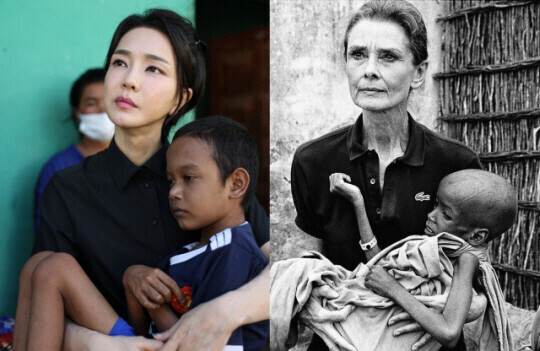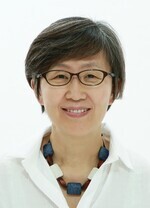hankyoreh
Links to other country sites 다른 나라 사이트 링크
[Guest essay] “Poverty porn” discourse highlights worrying rise of anti-intellectual rage in Korea


Not long ago, a certain online community drew unexpected ire after using the term “explicit apology,” in the process sparking social interest in Korea's lowered level of literacy.
Perhaps because of pride in the Korean alphabet, Hangul, which is easy to read and write by design, few people would have doubted Koreans' literacy prior to the incident. One teacher posited that not only has literacy fallen, but also that because of the prolonged period without face-to-face meetings, and a digital environment that favors concise transfers of information, people have grown accustomed to reading and writing at a middle school junior level, such as with simple expressions like “supes sry.”
What drew my attention, however, was the haughty attitude of some of the people who failed to understand what “explicit” meant in the context of an apology. Mixing obscenities and mockery, certain responses showed none of the confusion that you should display when you've failed to understand the given information, nor did they display curiosity or a desire to understand or learn.
Just as worrying as the lowered literacy was this attitude where people seemingly express irritation and pick fights with everything they dislike.
To say that claims of "misandry" that surrounded a camping advertisement from a certain major convenience store chain and some promotional material from the police — or calls for a gold medal to be stripped from a woman's university student on the Korean Olympic squad because she has short hair — are "over the line" doesn't go far enough.
Recent criticism by opposition lawmakers that the first lady engaged in "poverty porn" sparked responses from ruling party politicians no less fierce than those in the perplexing, absurd debate over "misandry." Out of the blue, they are attacking an actress who has quietly served as a goodwill ambassador for the UNHCR for close to a decade as a "porno actress," and absurdly calling for critics to apologize to all Korean women.
If critics of the first lady had predicted this "no questions asked" rage, perhaps instead of "poverty porn," they should have criticized how she engaged in "volunteer service she couldn't have imagined doing in a developed nation," "volunteer work she couldn't have imagined doing with a white child," "self-serving volunteer work while she looked vaguely into the distance rather than the child in her arms," or "volunteer work that could spread COVID-19 because she wasn't wearing a mask."
Kim Nae-hoon, the author of "Radical 20s," said the "extreme hatred" of feminism by men in their 20s is characterized by extreme hatred of the very word "feminism," without a proper understanding of what feminism is. Instead of a true effort to gradually learn about new, unfamiliar concepts or phenomena with a sense of curiosity, they respond with hatred, mockery and furious finger-pointing.
Seeing how critics don't want to know the meaning, it's natural that the discussion of feminism often transforms into unrelated arguments far off the mark, as seen in the ruling party politicians' response to the "poverty porn" criticism. Seen this way, it's not just certain men in their 20s who are trying to taste a sense of power and political efficacy by expressing rage with no effort to understand the meaning of certain theories or concepts.
Politicians who call themselves the driving force of democratization but are indifferent to gender discrimination or gendered violence. Politicians who talk about freedom and law and order but care little for freedom of the press or gender equality. Politicians who say they care only for the people but take no responsibility for public safety or the lives of the people. Politicians who say they speak for young men while slamming feminists as "femi-nazis." Politicians who drive men to anger with fake news claiming that feminism regards all men as potential assailants. The anti-intellectual political history of Korean society, which has thus enabled — even after the establishment of a democratic system in 1987 — brash public statements ignorant of meaning, transfers and seizures of power through empty words alone and boisterous bluffing, was repeated once again in the poverty porn "fable."
To engage in unofficial "volunteer work" is only possible because Cambodia is poorer than Korea, for a "fair-skinned" first lady to hold in her arms a Southeast Asian child in full imitation of white supremacy, to take a photo with a self-absorbed gaze rather than looking at the child in your arms — all of this is nothing more, and nothing less, than "poverty porn."
So politicians, don't raise your voice pretending to care, because the honor of Korean women, and of that actress who has long worked for refugees, is so high that no politician can slander them.
Instead, please take a look at your own anti-intellectualism that allows you to "speak boldly from ignorance," that lets you talk of freedom, democracy, gender equality, life, responsibility and introspection while knowing nothing of their meaning.
Please direct questions or comments to [english@hani.co.kr]

Editorial・opinion
![[Column] Life on our Trisolaris [Column] Life on our Trisolaris](https://flexible.img.hani.co.kr/flexible/normal/500/300/imgdb/original/2024/0505/4817148682278544.jpg) [Column] Life on our Trisolaris
[Column] Life on our Trisolaris![[Editorial] Penalties for airing allegations against Korea’s first lady endanger free press [Editorial] Penalties for airing allegations against Korea’s first lady endanger free press](https://flexible.img.hani.co.kr/flexible/normal/500/300/imgdb/original/2024/0502/1817146398095106.jpg) [Editorial] Penalties for airing allegations against Korea’s first lady endanger free press
[Editorial] Penalties for airing allegations against Korea’s first lady endanger free press- [Editorial] Yoon must halt procurement of SM-3 interceptor missiles
- [Guest essay] Maybe Korea’s rapid population decline is an opportunity, not a crisis
- [Column] Can Yoon steer diplomacy with Russia, China back on track?
- [Column] Season 2 of special prosecutor probe may be coming to Korea soon
- [Column] Park Geun-hye déjà vu in Yoon Suk-yeol
- [Editorial] New weight of N. Korea’s nuclear threats makes dialogue all the more urgent
- [Guest essay] The real reason Korea’s new right wants to dub Rhee a founding father
- [Column] ‘Choson’: Is it time we start referring to N. Korea in its own terms?
Most viewed articles
- 160% of young Koreans see no need to have kids after marriage
- 2[Column] Life on our Trisolaris
- 3[Reporter’s notebook] In Min’s world, she’s the artist — and NewJeans is her art
- 4Hybe-Ador dispute shines light on pervasive issues behind K-pop’s tidy facade
- 5[Editorial] Penalties for airing allegations against Korea’s first lady endanger free press
- 6Presidential office warns of veto in response to opposition passing special counsel probe act
- 7Vietnamese war victims speak of sexual violence by S. Korean troops for the first time
- 8S. Korea discusses participation in defense development with AUKUS alliance
- 9Japan says it’s not pressuring Naver to sell Line, but Korean insiders say otherwise
- 10Months and months of overdue wages are pushing migrant workers in Korea into debt